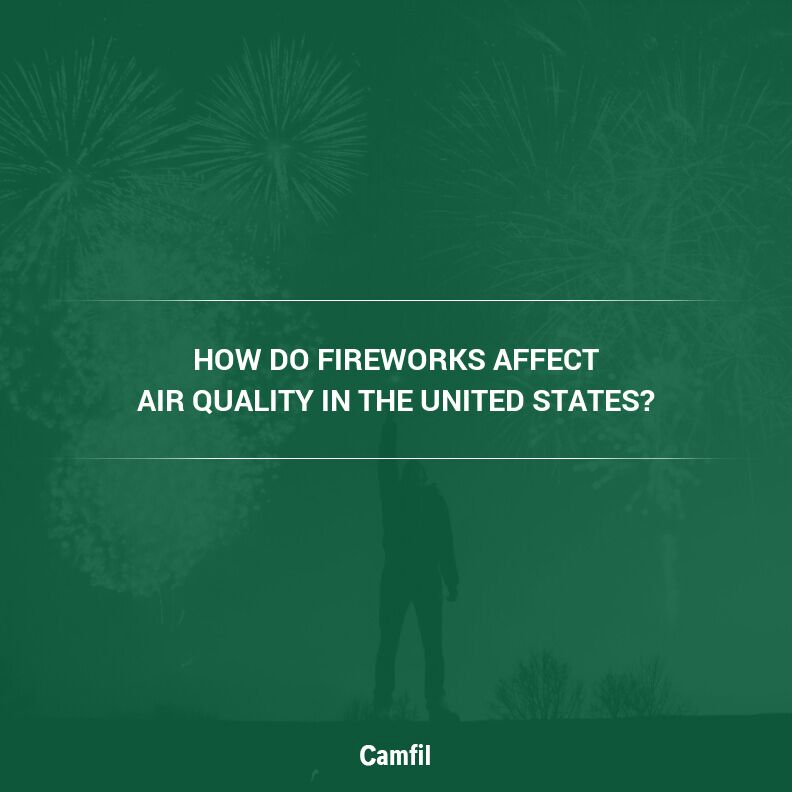
How Do Fireworks Affect Air Quality in the United States? Air Pollution Experts Explain
Fireworks were a factor in over 10,000 emergency room admissions in the U.S. last year, according to the United States Consumer Product Safety Commission (CPSC), and nearly three-quarters of those injuries occurred between mid-June and mid-July.
While burns and other acute injuries are unsurprising effects of DIY fireworks displays, fireworks emit potentially hazardous air pollutants that can have long-term health effects, even for people who are not involved in lighting them.
What Air Pollutants Come from Fireworks?
Fireworks are made of gunpowder (or black powder), which is a mixture of potassium nitrate, sulfur, and charcoal that burn quickly and explode to act as a propellant. While the products of gunpowder combustion vary based on its exact composition, gunpowder typically produces the following pollutants when burned:
- Carbon dioxide (CO2), which can cause headaches and dizziness at high concentrations.
- Carbon monoxide (CO), a poisonous gas that reduces the flow of oxygen around the body when inhaled, leading to dizziness, confusion, and potentially organ damage and death.
- Nitrogen (N2), a stable gas that naturally makes up the majority of the earth’s atmosphere.
- Potassium carbonate (K2CO3), a caustic chemical used in industrial processes that can cause severe respiratory irritation inhaled.
- Potassium sulfide (K2S) quickly reacts with moisture in the air to form potassium hydrosulfide and potassium hydroxide, which burns the skin, damages the eyes, and irritates...
Read Full Story: https://cleanair.camfil.us/2023/07/21/how-do-fireworks-affect-air-quality-in-the-united-states-air-pollution-experts-explain/
Your content is great. However, if any of the content contained herein violates any rights of yours, including those of copyright, please contact us immediately by e-mail at media[@]kissrpr.com.